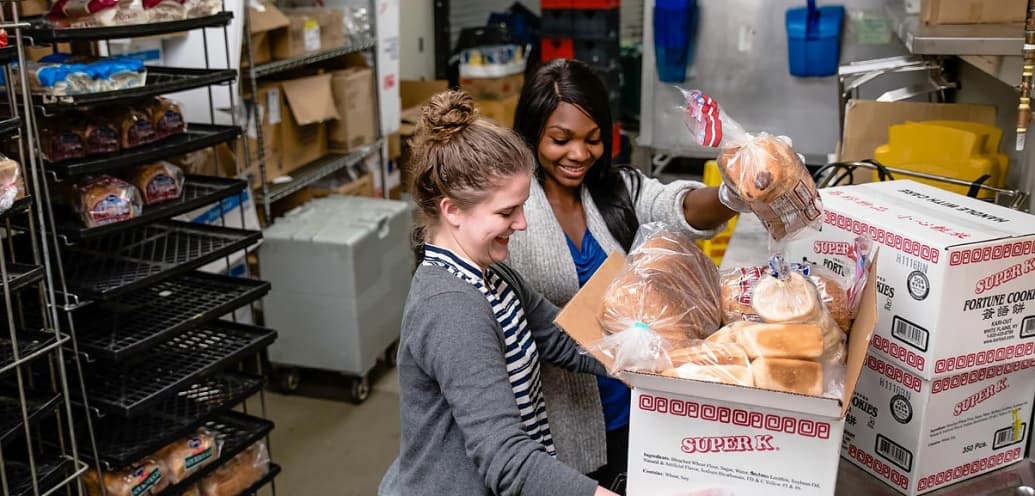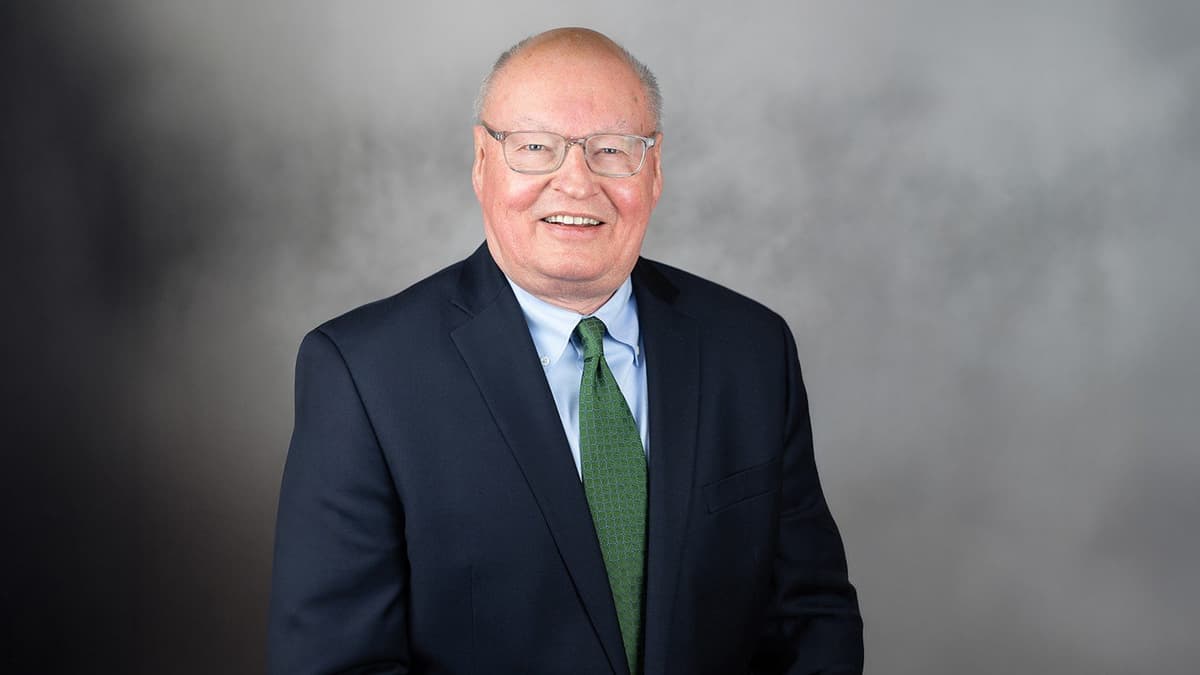Just over 10 years ago, Seattle declared its intention to end homelessness. Long story short: We’re not there yet. A 2016 count found that 4,505 people in King County without shelter at night. SPU students have voiced strong concern about this problem, and as a result of their advocacy, Seattle Pacific University President Daniel J. Martin proposed an Initiative on Homelessness last year.
University students are taking action in many ways. One example? Pre-med student Maya Swinehart, who started a new SPU club, helped deliver over 1,500 meals in under six months.

Senior Maya Swinehart remembers the first time she encountered homelessness in Seattle. During her freshman year, she and a roommate took the Route 13 bus to downtown Seattle to see a movie.
“All along the road were sleeping bags, blankets, and people lined up,” she remembers. Some were waiting for the bus. Others were lingering on the sidewalk — their clothes worn, their faces tired.
Outside the theater after the movie, Swinehart saw another man asking for food. Everyone walked past him, not even making eye contact. She offered the man the rest of her mini-pizza, and he was thankful, but she wished she could have done more. “As a college student, working a minimum wage job, you don’t necessarily have a lot to give,” she says.
She decided to get creative — to look at the problem a different way. While working in SPU’s dining hall, Gwinn Commons, Swinehart came face-to-face with the solution she’d been searching for: food for Seattle’s homeless or hungry.

Gwinn Commons serves 900-1,000 meals a day. “We have 12 stations,” says Kim Karstens, general manager of SPU Dining Services. “Depending on what station is popular or not popular, we have a variety of leftovers.” Some foods can be reused, but company policy prevents others, like rice, from being reheated.
As a result, all unused or uneaten food went to Cedar Grove composting. Every time Swinehart saw a tray of food dumped into the compost, she pictured the man outside the movie theater — ignored by everyone who walked by — grateful for just two mini slices of pizza.
She had to do something. Teaming with her friend and nursing major Lauren Isham ’16, the premed student worked with Sodexo, SPU’s campus dining provider, to start SPU’s chapter of the Food Recovery Network. This nationwide organization fights hunger with the help of universities and restaurants, and SPU was their first private university in Washington state.

As SPU’s Sustainability intern, Isham tracked the University’s carbon footprint and helped with campus-wide composting. Donating food took her 5-20 minutes, once a week. For Isham, this was a practical way to respond to issues she learned about in her SPU nursing classes. “During my community health rotation [for nursing], I was at a women’s shelter, and many of those women have hypertension or diabetes,” she says. “Food from Gwinn is more likely to include vegetables and fewer simple carbohydrates. It’s not just donated pastries or pizza.”
SPU donations are split between Food in Motion, which is part of Operation: Sack Lunch and Tent City 5, a community for homeless men and women just over the hill from SPU. All donations follow strict temperature and food safety guidelines, and no food that has been sitting out in the cafeteria stations qualifies.
On Mondays, Swinehart delivers food to Tent City, where residents know her and ask about life and classes. “We usually have rice,” she says. “We’ll get chicken, stews with vegetables and meats, macaroni and cheese, chow mein. We’re providing proteins, fats, carbohydrates, all the food groups.”
As a pre-med student, Swinehart has an academic interest in health. She participated in behavioral neuro endocrinology research with Associate Professor of Biology Janet Bester-Meredith. She intends to study endocrinology — diseases related to hormone imbalances — and wants to focus on family medicine. With a double major in applied human biology and psychology, she’s particularly interested in how a person’s environment impacts their health.
Students often talk about Seattle Pacific’s mission of “engaging the culture, changing the world.” Swinehart says, “We have a wonderful mission statement. It’s really beautiful to see the ways that people within the community continue to push for us to live up to that. But it’s more than a tagline. We should try to solve problems around us.”
Swinehart still talks to people she meets downtown who are homeless — asking what she can buy them for lunch, or sharing one of the granola bars she keeps in her car — but SPU’s Food Recovery Network allows her to make a more permanent and lasting impact.
“Everyone is human,” she says. “Any one of us could experience something life-altering that puts us in a difficult situation. I would hope someone would remember that I am a human, too.”





